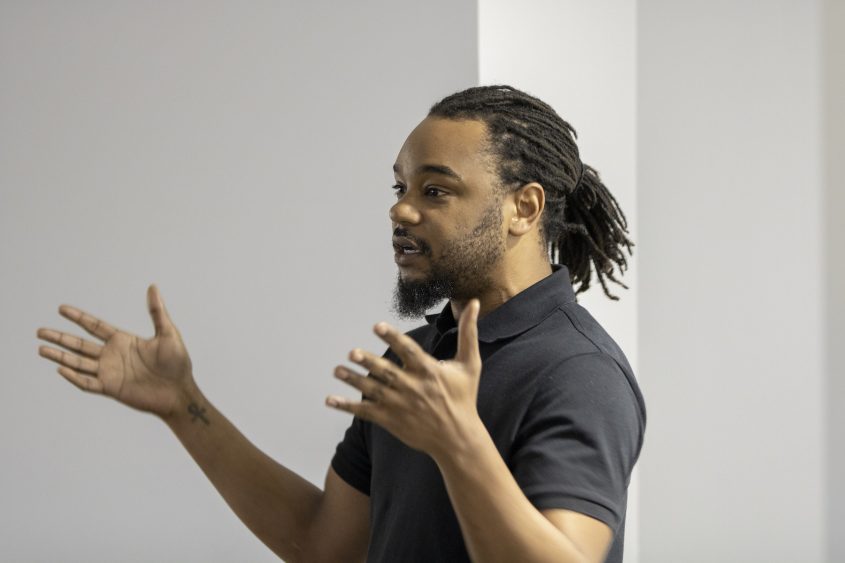
A New Vision of Black America Launches Transdisciplinary Venture In first event of Schoolwide seminar series, 'Chocolate Cities' author calls for a fresh lens on culture and history
By Mary Braswell
To fully comprehend the experience of black Americans, start by throwing out conventional maps, tired vocabularies and old ways of thinking.
That is the core message of Marcus Anthony Hunter, chair of African American Studies at UCLA and co-author of a new book about the struggle and triumph of black culture over many generations.
Hunter drew on insights and anecdotes from the book, “Chocolate Cities: The Black Map of American Life,” to engage an audience of more than 50 students, faculty and guests at a Nov. 19, 2018, lecture at the UCLA Luskin School of Public Affairs.
“I believe that in order to move forward into a more productive world and more productive scientific conversation about space, place and people, we need new words,” he said. “And new words bring realities, bring frameworks, and so my agenda today is to give you some new words and bring it from the culture.”
Hunter’s takeaway — to seek out fresh vantage points for a clearer picture of truth — was a fitting launch for the Transdisciplinary Speaker Series at UCLA Luskin. A collaborative effort by Public Policy, Social Welfare and Urban Planning, the new series brings in lecturers from across the spectrum of social sciences to share messages that cross, even erase, disciplinary lines.
“We are talking about how to step out of our silos,” said Social Welfare Professor Mark Kaplan, who spearheaded the seminar series. “This is really an effort to get people to think beyond their immediate range of disciplinary interest.”
Faculty members including Mark Peterson of Public Policy, Laura Wray-Lake of Social Welfare and Amada Armenta and Kian Goh of Urban Planning worked together to nominate speakers “who perhaps we would not think of in our own fields,” Kaplan said.
The series aspires to do more than simply attract people curious about what’s happening outside their own disciplines. It aims to shatter old paradigms, overcome institutional resistance, encourage collaborative work and find solutions to the tough social problems that UCLA Luskin tackles daily, Kaplan said.
He envisions UCLA Luskin as a laboratory for the transdisciplinary approach, an idea that has been incubating at the School for years. The initiative got new life in spring 2018 when Dean Gary Segura met with Kaplan and endorsed the lecture series and its broader ambitions.
Hunter’s talk showed the potential of the cross-pollination approach, weaving urban geography together with demographic data, oral histories, news archives and a large dose of cultural touchpoints from poetry, fiction, film and music.
Parliament Funkadelic’s 1975 “Chocolate City” album inspired Hunter and co-author Zandria F. Robinson to adopt the term as a fitting description of black communities, replacing “slum,” “ghetto,” “Buttermilk Bottom,” “Cabrini Green,” “South Central” — and the stereotypes they invoke.
“Wherever two or more black people are gathered, there is a chocolate city,” Hunter told the Transdisciplinary Speaker Series audience. But he stressed that the black experience does not require a physical bond.
“There’s this idea of connectivity across black space that to me is deeply, deeply profound,” said Hunter, an associate professor of sociology. “Without meeting with each other, there’s a similar sentiment about all sorts of things related to trauma, struggle and accomplishment.”
To underscore his argument that conventional borders are misleading and outmoded, Hunter played audio of Malcolm X’s 1964 address at King Solomon Baptist Church in Detroit.
“If you black, you were born in jail, in the North as well as the South,” the racial justice advocate said. “Stop talking about the South. As long as you south of the Canadian border, you South.”
Hunter’s reimagining of U.S. territory is made up of many different “Souths.”
“When we think about the South, we’re talking about surveillance, Jim Crow, racial segregation, residential segregation. We know from the research that these practices exist all across the United States, but we usually attribute bad behavior to the South,” Hunter said.
“Everywhere is the South if you are black. The South follows black people as they leave.”
Some of these geographies exist below the surface, as in the case of black transgender women, Hunter argued. He aired video clips of “the two Ms. Johnsons”: Gay rights activist Marsha P. Johnson was killed in suspicious circumstances in New York City in 1992. Duanna Johnson was shot to death on a Memphis street in 2008, months after her videotaped beating by two police officers drew wide condemnation. The killers of these two black transgender women have never been found.
“Your status as trans puts you at this really interesting and dangerous intersection and you often come up missing,” said Hunter, who devoted a chapter in his book to the two Ms. Johnsons and the little-known worlds they traversed.
“Our goal here was to recover those maps and to also honor the lives of these people who tried to navigate the chocolate city in all of its dangers and wonders.”
View a Flickr album from the Transdisciplinary Speaker Series event.
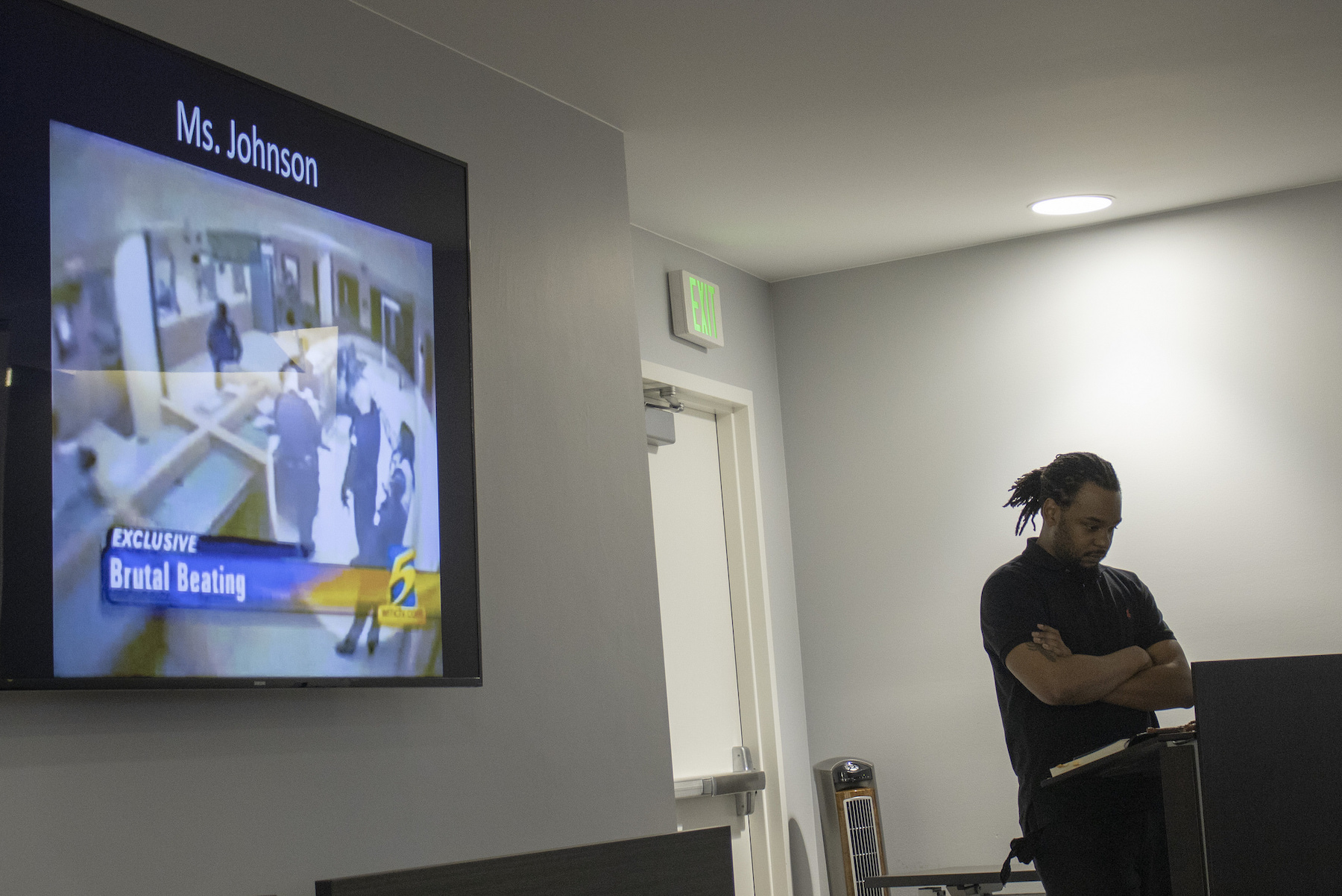
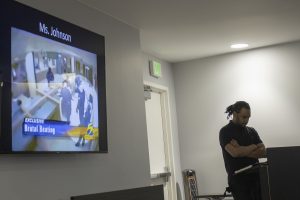
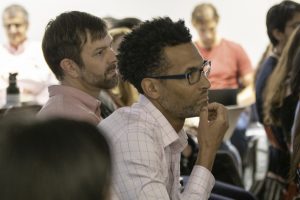

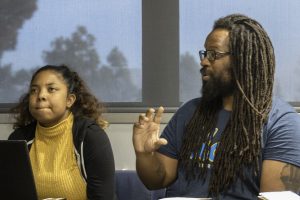
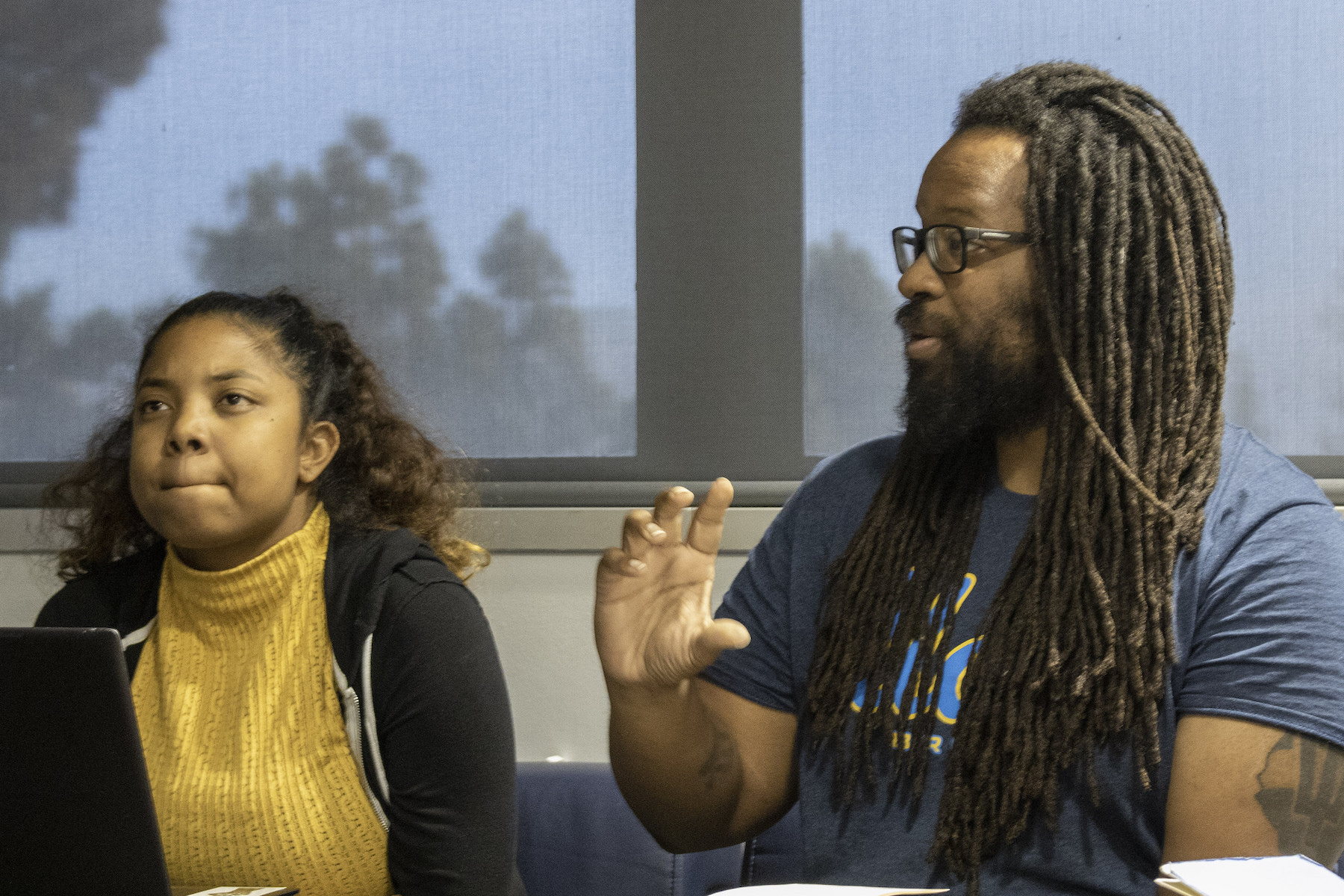
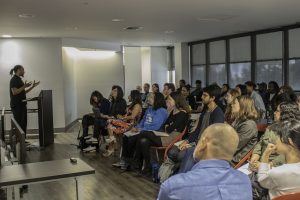
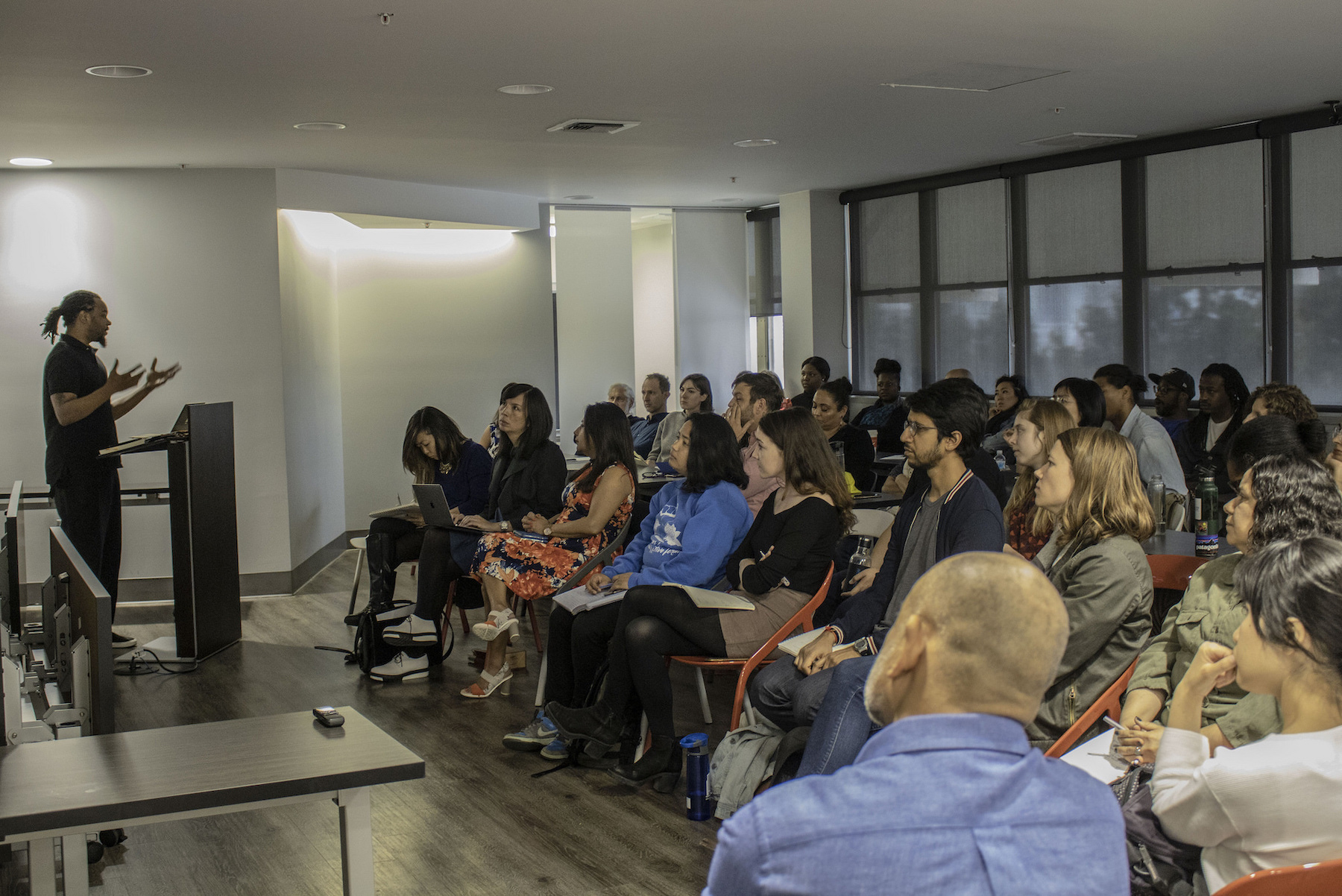
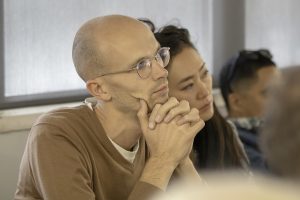
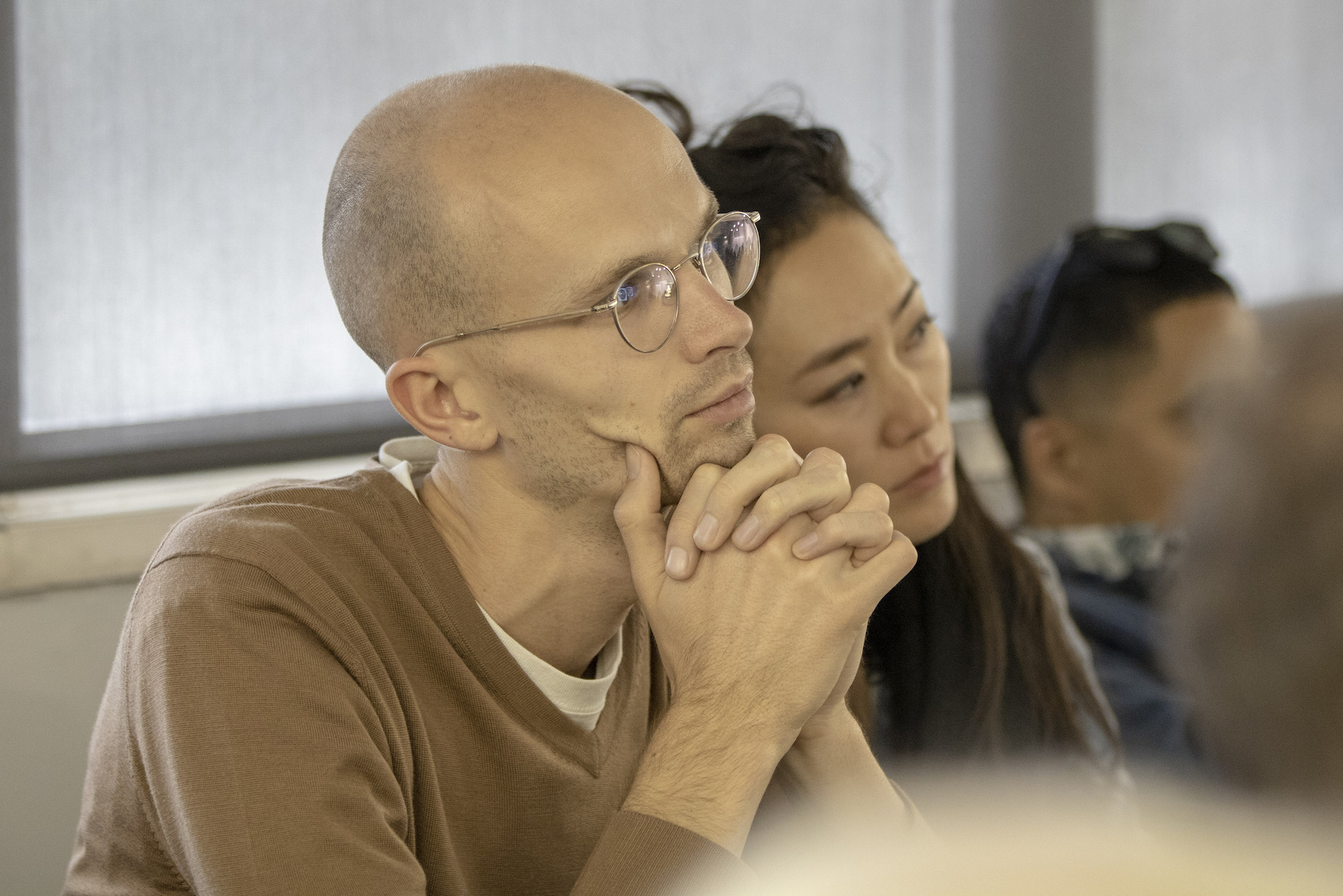
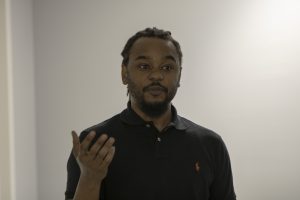
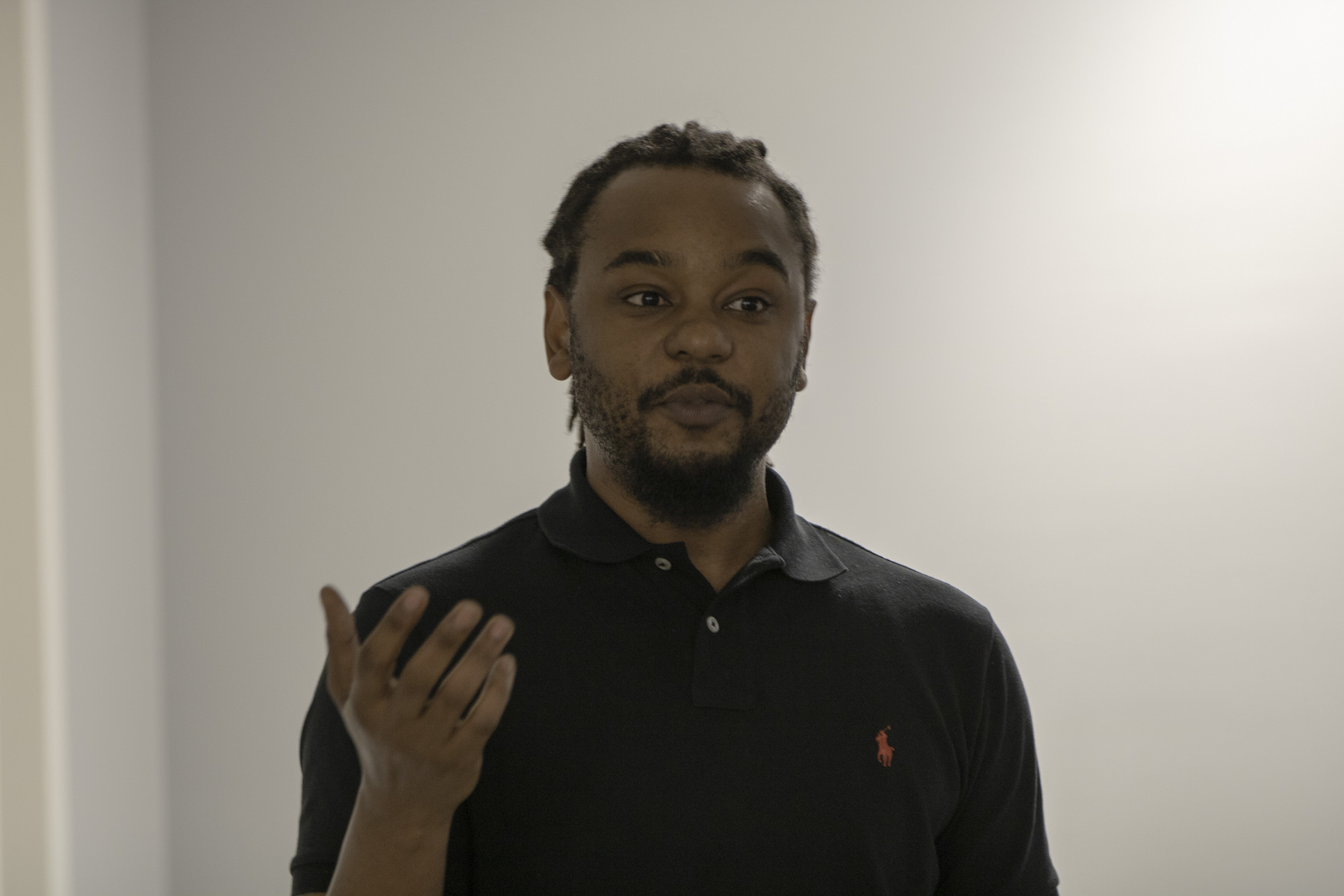
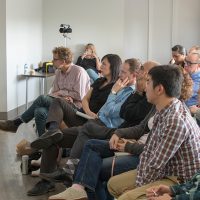
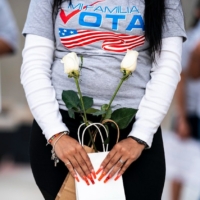
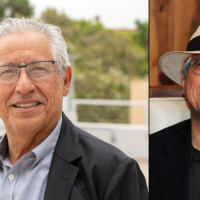
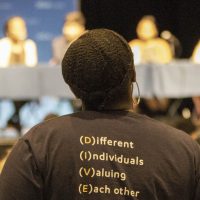
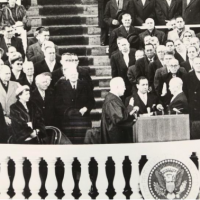

Leave a Reply
Want to join the discussion?Feel free to contribute!